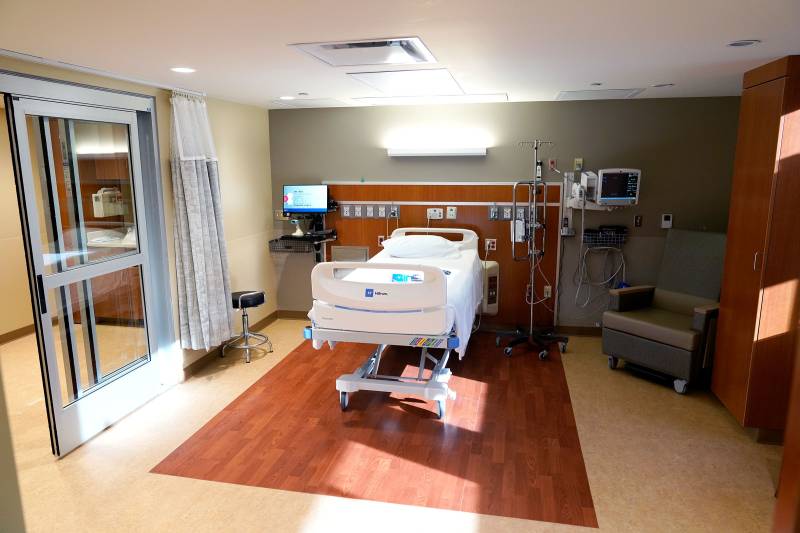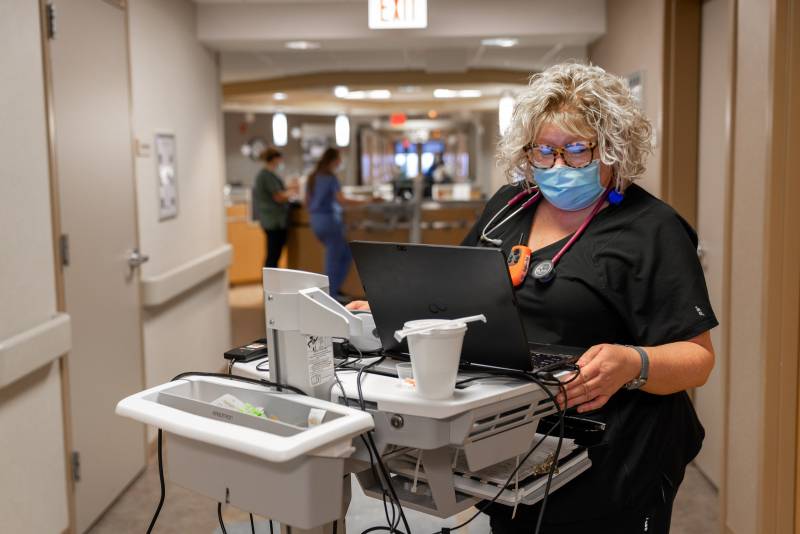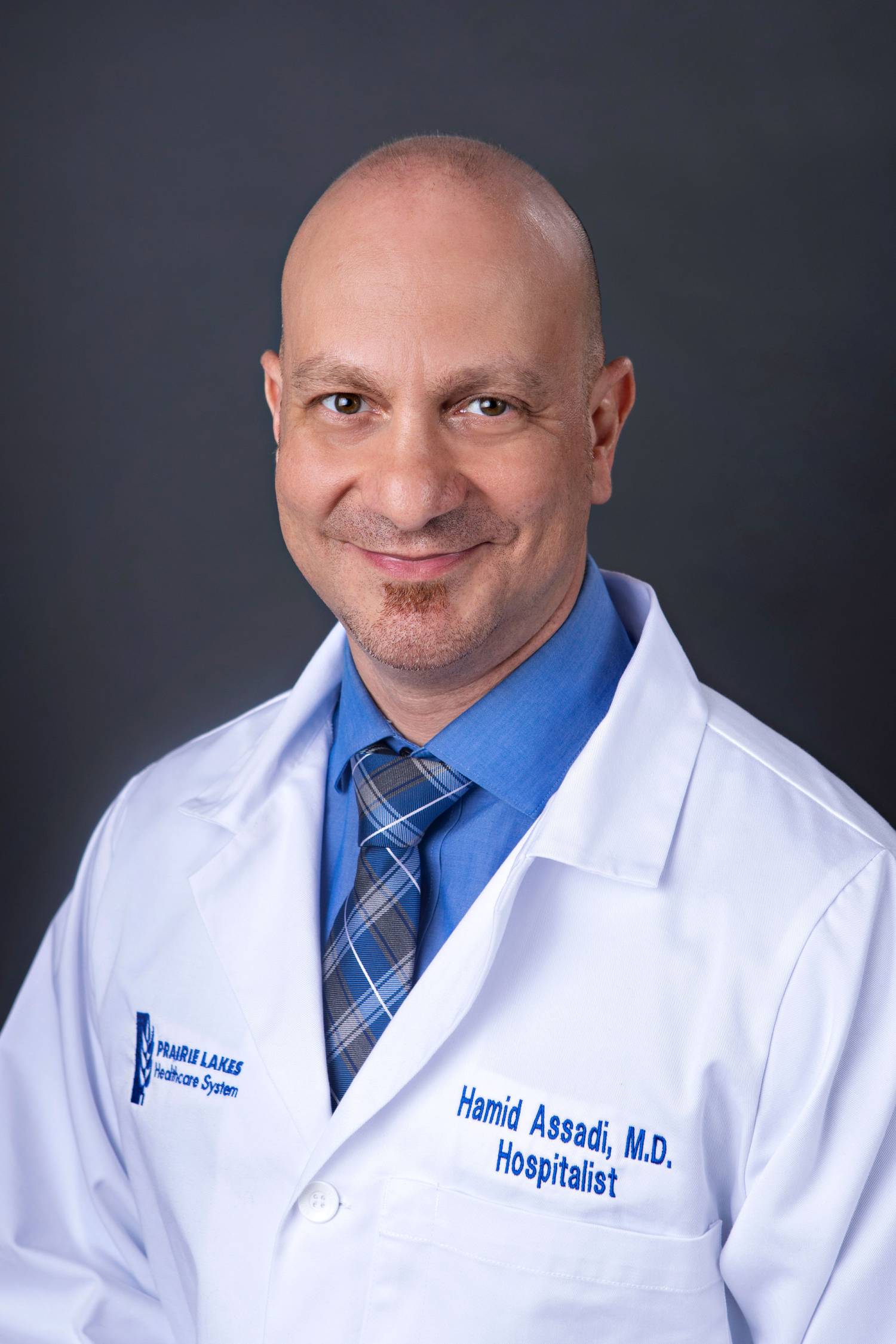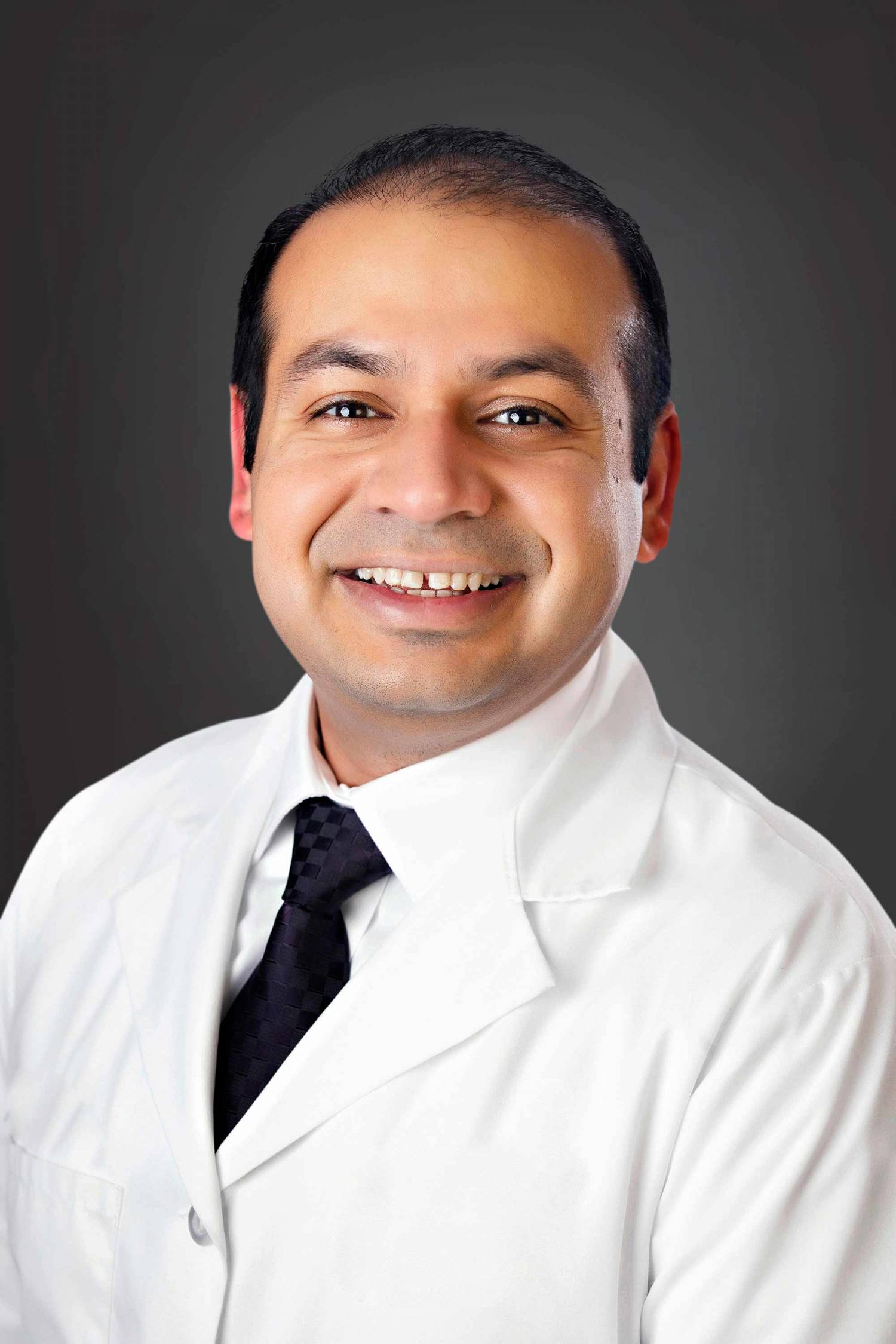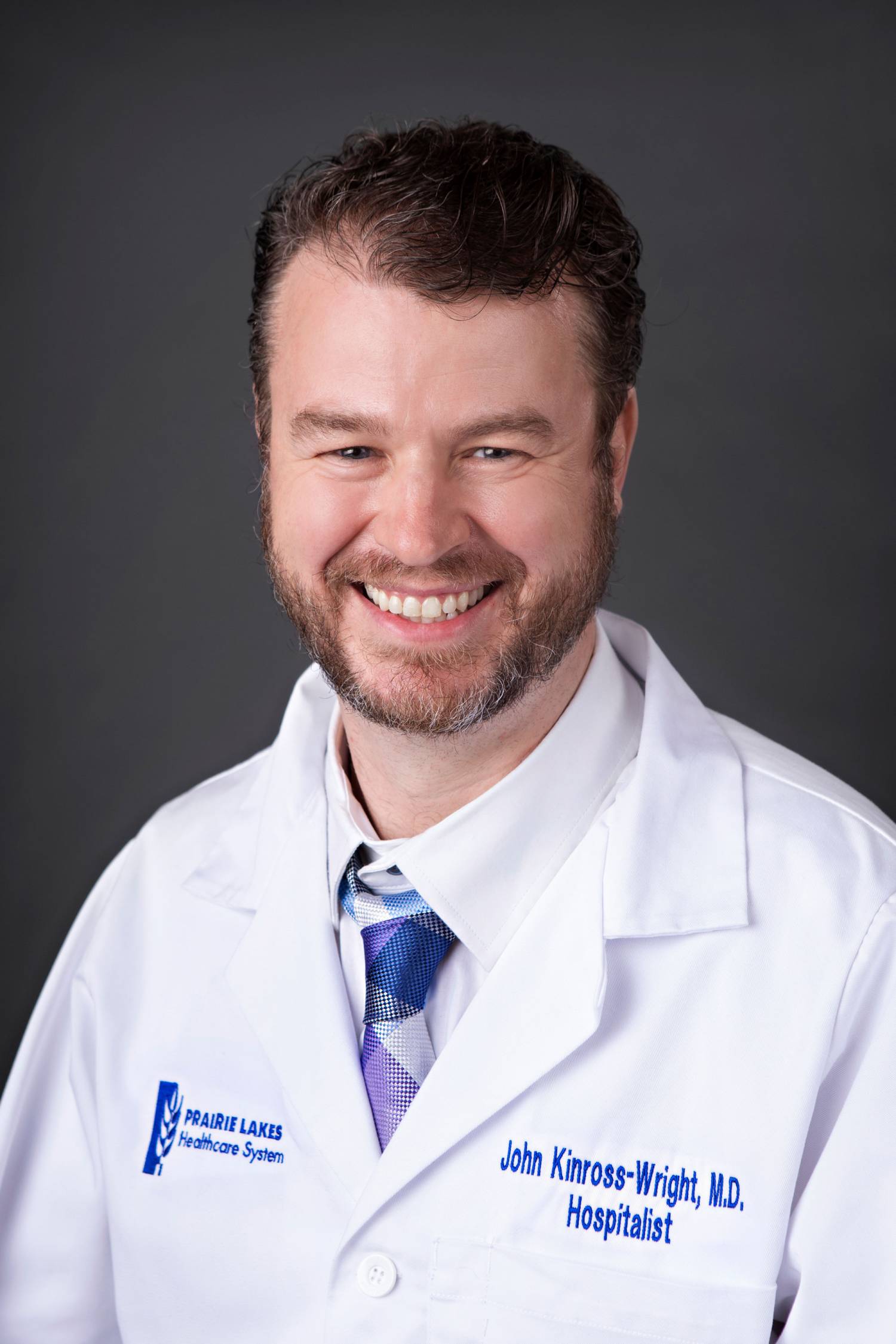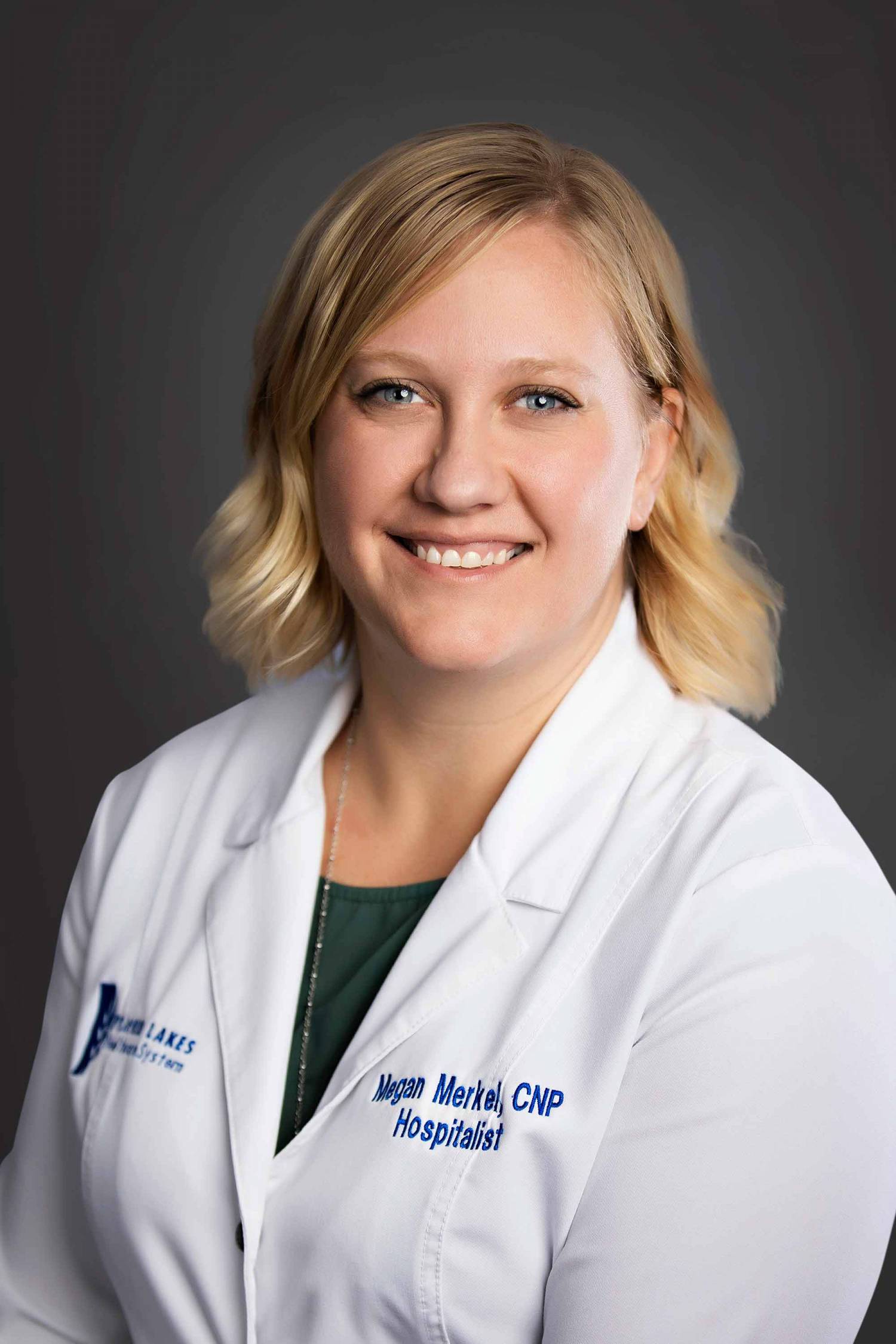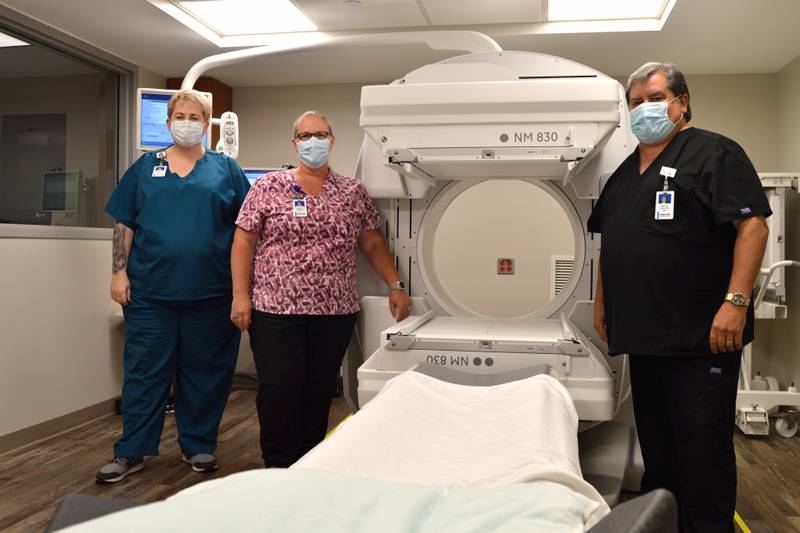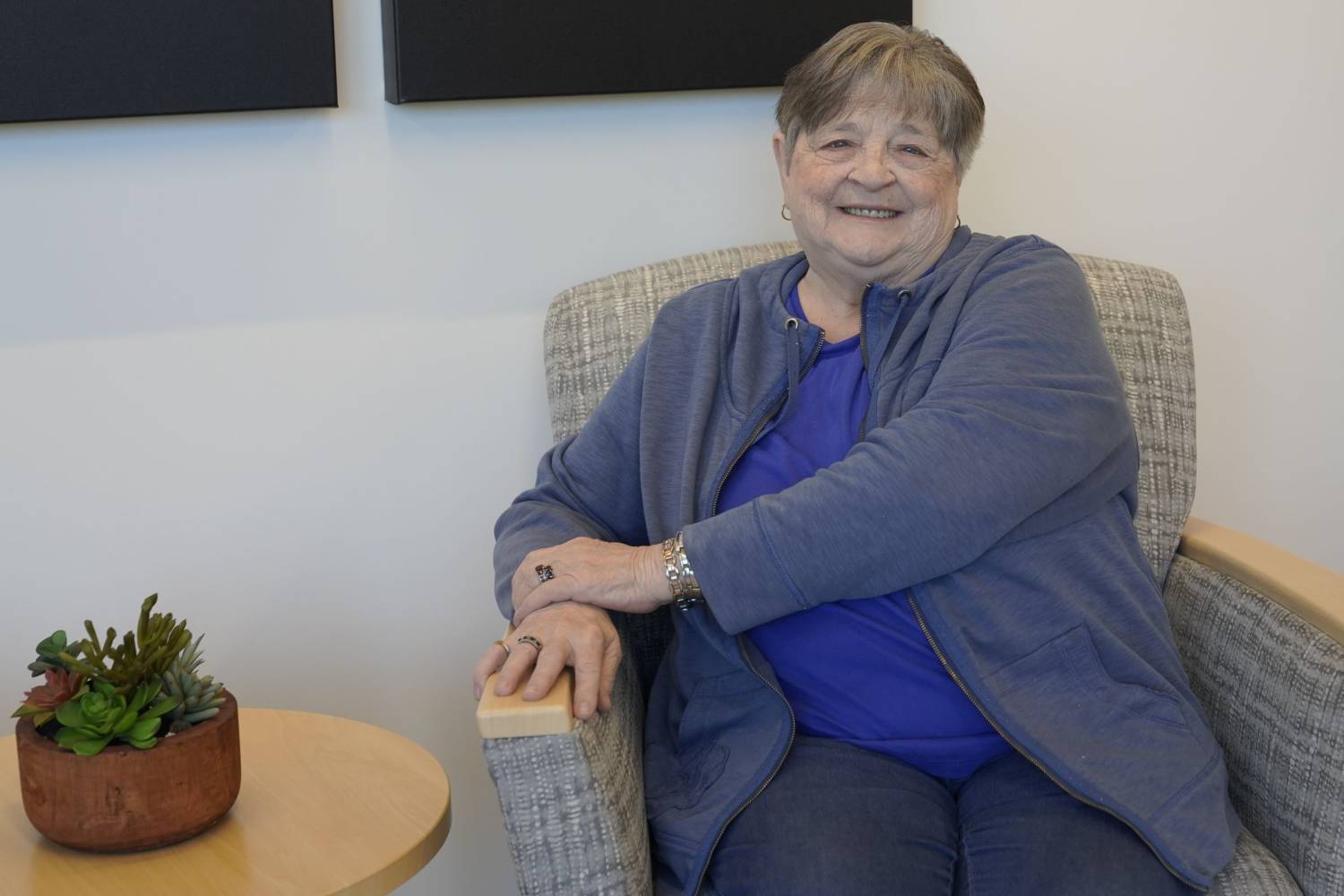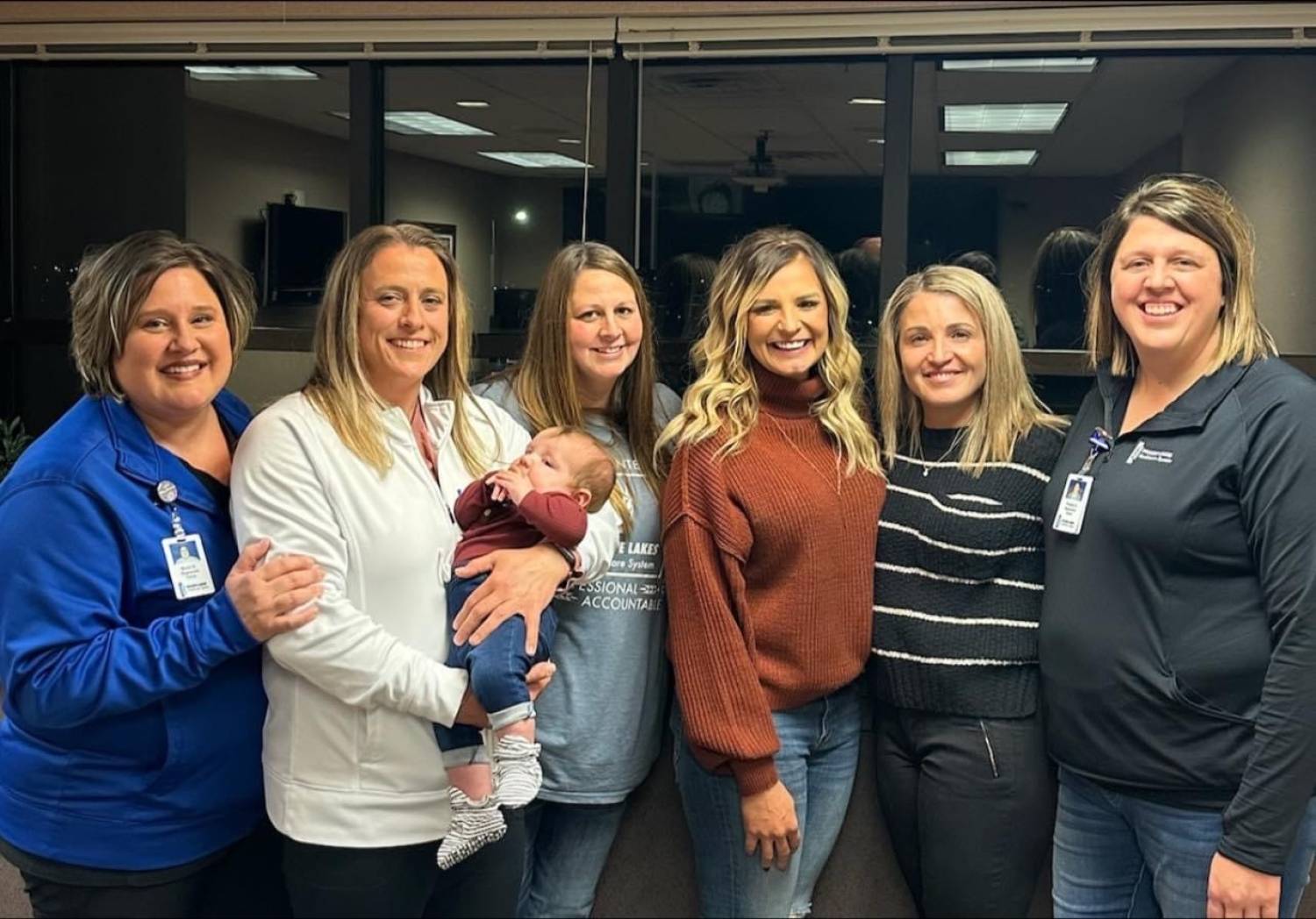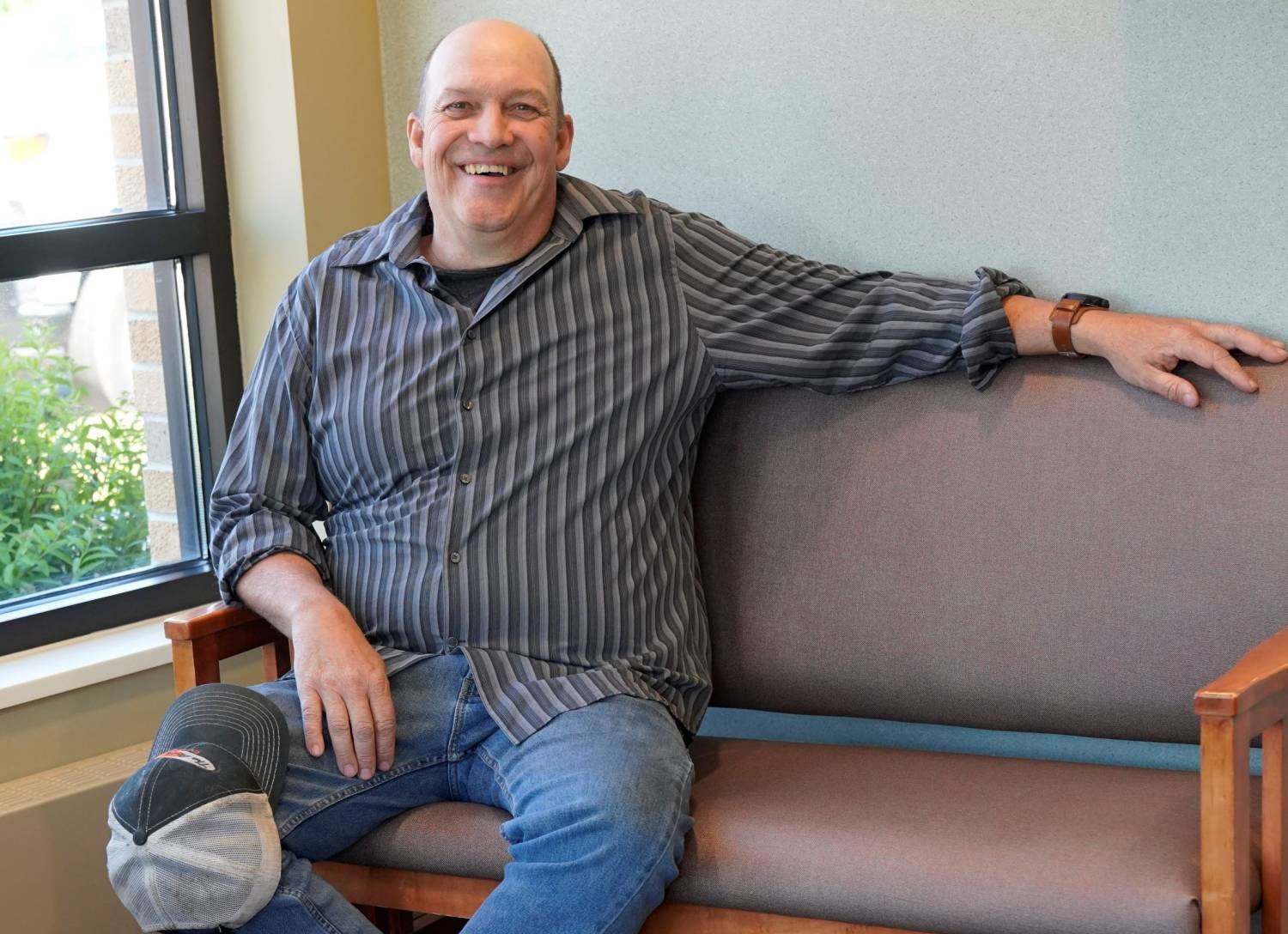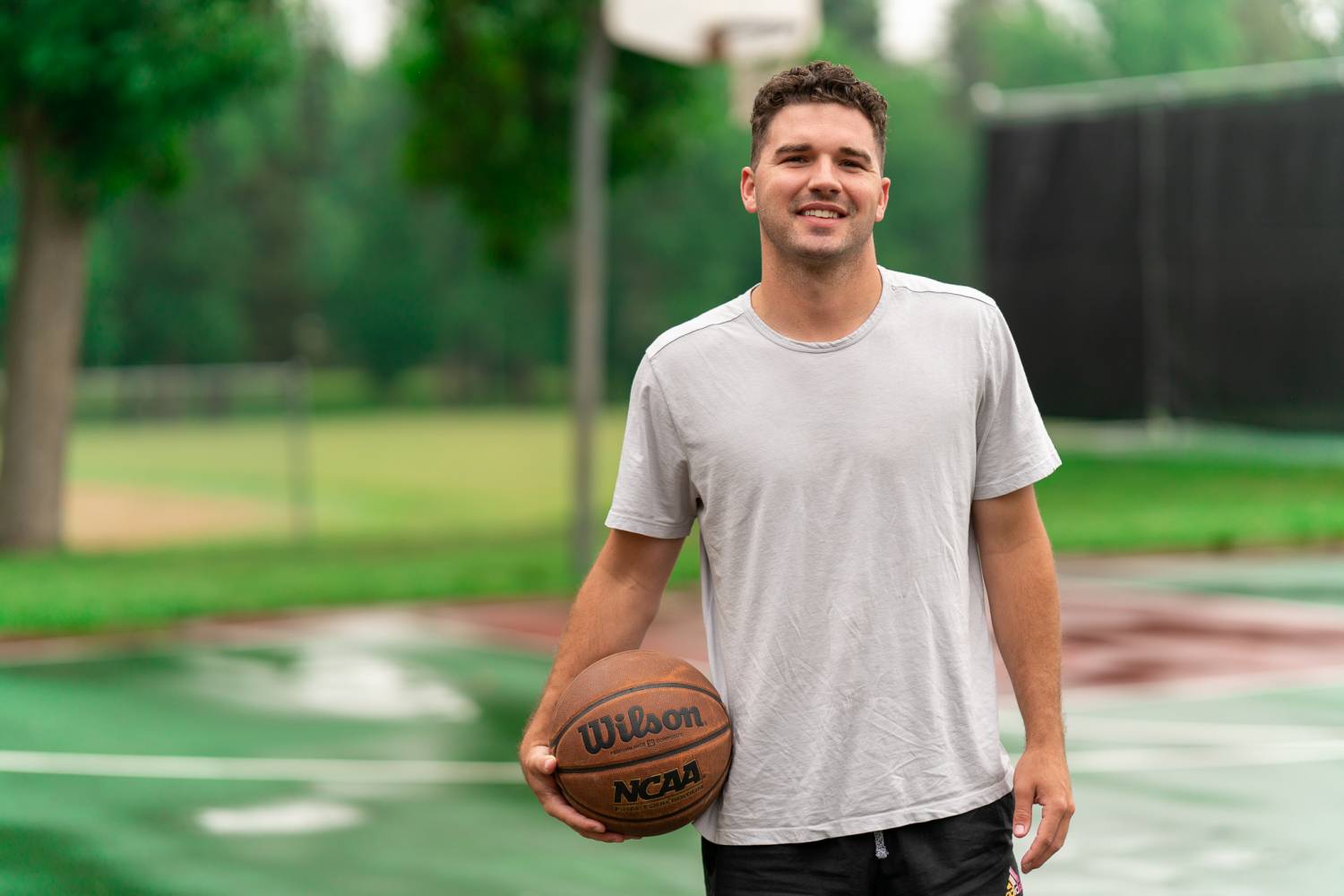Jack Hughes
Wednesday, May 01, 2013
Patient Rooms
We designed our hospital rooms with your comfort and well-being in mind. We want your stay with us to be as comfortable and home-like as possible. Each spacious, all-private room has its own large window. In addition, each room has:
- A private bathroom
- Closet space for your personal belongings
- Cable TV
- Telephone service (no charge for local calls)
- A dining menu that lets you order your favorite foods from Nutritional Services
We understand that contact with family, friends and caregivers is an important part of the recovery process. Visitors are welcome any time of day (they might be asked to step out of your room during certain procedures). Guest beds are available for comfortable overnight stays and the Caring Club House is lodging available on campus for out of town family members.
Published in
What to Expect - Inpatient Services
Tagged under
Wednesday, May 01, 2013
Critical Care Unit
The Prairie Lakes Critical Care Unit (CCU) provides nursing care and intervention to adult cardiac, medical, and surgical patients for a variety of critical conditions. We serve patients who have undergone surgery, multi-trauma injuries, diagnostic invasive monitoring, and complex medication administration.
CCU Patient Rooms
The Critical Care Unit has eight (8) patient rooms spacious enough to house the most advanced monitoring systems available. The unit's nurses have extensive experience and training to care for critical patients.
- 4 Standard CCU patient rooms
- 1 Bariatric/Isolation patient room (room accommodations for larger patients)
- 1 Standard Isolation patient room (negative airflow room)
- 2 eICU patient rooms
eICU Patient Rooms
The eICU (electronic intensive care unit) allows our physicians and staff to consult with offsite critical care specialists via high-speed data networks. Real-time patient information such as vital signs, medication and test results can be monitored by round-the-clock intensivists at Avera McKennan Hospital in Sioux Falls. In the past, these critically ill patients had to be transferred. Now they can stay in Watertown, close to family and friends.
Telemetry Unit
The Telemetry Unit is located near the CCU and is for patients who need ongoing cardiac monitoring, but not the services of the CCU. In the Telemetry Unit, electronic signals are transmitted from electrodes placed on a patient to a monitor where they are stored and interpreted. The continuous monitoring ensures that they are responding to treatment appropriately and that any changes to their condition can be immediately identified and acted upon.
CCU and Telemetry services are available 24 hours a day, 7 days a week.
Published in
Inpatient Services
Tagged under
Wednesday, May 01, 2013
Medical, Surgical & Pediatric Unit
The Medical/Surgical/Pediatric (MSP) Unit at Prairie Lakes Healthcare System treats patients from infants to elderly who require hospitalization for medical and surgical conditions. Patient conditions are as varied as their ages - from post hip replacement to influenza. Regardless of your age or condition, we bring you the best, most up-to-date care available right here in Watertown.
Published in
Inpatient Services
Tagged under
Wednesday, May 01, 2013
Hospitalists
Prairie Lakes Healthcare System has a team of hospitalists who make sure that all aspects of your care during your stay are being addressed. Our hospitalists are medical doctors with advanced expertise in fields such as internal medicine and family practice. They work closely with the pharmacy staff, nurses, social workers and other medical professionals to create and complete a comprehensive plan of care for your stay at Prairie Lakes Hospital.
Our hospitalists don't replace your primary care doctor. In fact, they can partner with your doctor while you are in the hospital. The hospitalist will provide your doctor a detailed admission report and discharge summary. This allows your doctor to concentrate on the plan of treatment after you go home.
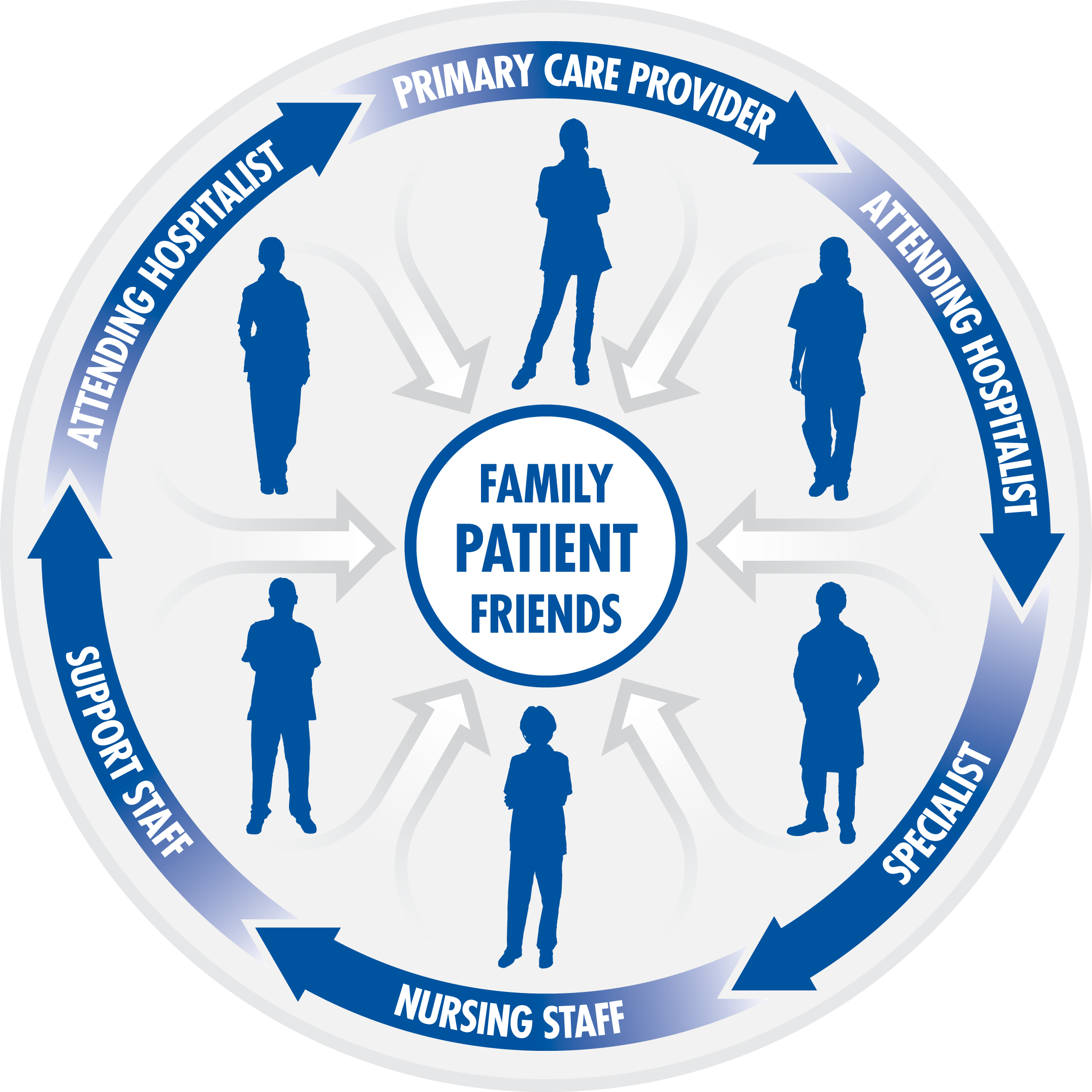
When you might see a hospitalist
- If emergency room doctors admit you as a patient, they will call a hospitalist to provide the inpatient care after you are transferred to your room.
- From the time you are admitted to the day you are discharged, the hospitalist will follow through and make sure all of your medical needs are being address.
- If a surgeon or specialist admits a patient, a hospitalist may oversee inpatient care after you are transferred to your room.
What to expect
- Each morning the hospitalist meets with the multi-disciplinary team to review your case and adjust your treatment plan accordingly.
- The hospitalist will visit you at your bedside each day, and will be available at any time. That face-to-face communication is an important part of your recovery.
- The hospitalist can expedite test results and, if needed, make changes to your treatment regardless of the time of day.
- If there's a question the hospitalist can't immediately answer, he knows where to find answers from key staff including medical and surgical specialists, case managers and other specially-trained care providers.
- If there's a patient crisis, the hospitalist can respond quickly.
Published in
Inpatient Services
Tagged under
Wednesday, May 01, 2013
Room Service
Patients and their visitors may order off of the menu located in each patient room anytime 7:30 am - 6:00 pm. Staff members work with the nutritional services team managed by Sodexo. This team includes dietitians to provide well-balanced, nutritious options.
To Order Room Service:
- Select from options provided on the menu in each room
- Pick up the phone and place an order with Nutritional Services
- Wait for a specially prepared meal to be delivered to your room
If you have any dietary restrictions, be sure to keep them in mind while ordering. Guest payments are collected at the time of service.
Published in
Nutritional Services
Tagged under
Wednesday, May 01, 2013
Prairie Lakes Cafe
Sodexo proudly serves food every day of the week.
Monday - Friday 7:30 a.m. - 6:30 p.m.
Weekends and Holidays 11:00 a.m. - 2:00 p.m.
Where is the Cafe?
Prairie Lakes Café is located on the first floor of the hospital. A variety of meals and snacks are prepared by our team. For your convenience, the café is open every day of the week, as well as on holidays.
Available Items
Hot food items are available during breakfast, lunch, and supper. Simply To-Go meals and snacks are available during all open hours. Visitors are also welcome to use the Room Service Program, payable upon delivery.
Hot Food Schedule:
-
- Breakfast - 7:30 - 10:00 a.m.
- Lunch - 11:00 a.m. - 1:00 p.m.
- Dinner - 5:30 - 6:30 p.m.
Simply To-Go
Simply To-Go offers comprehensive, convenient meals for customers in a hurry. The grab-and-go menu consists of sandwiches, salads, desserts, and microwaveable meals.
Late Menu
When hot food services end, we still have options. The Late Lunch Menu is available 1:30 - 4:30 p.m during the weekday. The menu consists of burgers, chicken strips, chicken, and grilled cheese sandwiches. Call 605-882-7872 to place an order for pick-up.
Room Service
Patients and their visitors may order off of the menu located in each inpatient book anytime 7:30 a.m. - 6:00 p.m. The team managed by Sodexo strives to provide well-balanced, nutritious options.
Vending
Vending machines are located outside the cafeteria and in Same Day Surgery's waiting area, and are available 24/7. Cash and credit payments options are available.
Published in
Nutritional Services
Tagged under
Wednesday, May 01, 2013
Core4
Change your lifestyle, change your eating habits, change your attitude and change your life!
Effective weight maintenance isn’t just about losing pounds. It’s about gaining a healthier, more rewarding lifestyle. Recently revised in 2023, the course utilizes evidenced-based research and guidelines from The Academy of Nutrition and Dietetics (AND) among other national organizations. This comprehensive program encompasses nutrition education, physical activity, and the role of behavioral therapy in weight reduction and weight management.
In addition to nutrition education and the physical activity modules, behavior modification training now consists of weekly assignments and discussions from The Intuitive Eating Workbook by Evelyn Tribole and Elyse Resch. The book addresses how to listen to your body and normalize eating.
The 12-Week CORE4 Program
- Week 1: Individual Appointment with a Registered Dietitian
- Week 2: Getting Started
- Week 3: Taking Control - Behavior Modification
- Week 4: My Plate Portion Sizes and Label Reading
- Week 5: Meal Planning and Dining Out
- Week 6: The Power of Exercise
- Week 7: Choosing Wisely: Fat, Cholesterol and Triglycerides
- Week 8: Choosing Wisely: Carbohydrates and Fiber
- Week 9: Choosing Wisely: Protein, Stress, Sleep Hydration
- Week 10: Choosing Wisely: Vitamins and Minerals
- Week 11: Grocery Store Tour
- Week 12: Moving On
Next Session
Check back later this year for information on the next Core4 Winter Session.
Body Composition Analysis (BCA)
This analysis is based on an individual’s personal information using weight, height and age. The BCA shows the composition of your body in terms of fat, muscle, and water content. This can help you concentrate on losing body fat instead of just focusing on losing pounds. A body composition analysis is completed at the beginning and the end of this 12 week program.
Program Options
For your convenience, CORE4 is offered individually or in a group setting.
Individual
This setting provides individual, personalized consultations with Prairie Lakes Healthcare System Registered and Licensed Dietitians throughout the complete program. You will meet with the dietitian and develop a personalized plan in a private, confidential setting.
Group
This setting is great for co-workers, or a group of friends who wish to go through the program together and share their support. You will receive one individual appointment with a registered dietitian at the beginning of the program to set some individual goals and to complete your initial Body Composition Analysis. These sessions will be held at the same day and time each week.
Maintain Your Success
Following the 12 week weight loss program, CORE4 continues with a 3 month weight maintenance program designed to continue you on your weight management journey. Additional topics are available as well as ongoing support.
Every step of the way, we’ll be there to guide and encourage you! Contact the Prairie Lakes Healthcare System Registered Dietitians at 605-882-7874 to schedule an appointment or to inquire when the next group sessions start.
Published in
Nutritional Services
Tagged under
Wednesday, May 01, 2013
Dietitians
Registered Dietitians are food and nutrition experts, translating the science of nutrition into practical solutions for healthy living. We offer a full range of nutritional services and programs, ranging from one-on-one counseling to group programs.
Anyone can call themselves a nutritionist, but only a registered dietitian (RD) or registered dietitian nutritionist (RDN) has completed multiple layers of science-based education and training established by the Accreditation Council for Education in Nutrition and Dietetics. Watch the video to learn more about what makes RDs unique:
Services
One-On-One Counseling
Our dietitians guide clients through a lifestyle plan designed specifically for each individual's specific diet needs. One-on-one counseling offers clients the support and education needed to successfully make desired lifestyle changes. It also includes individual evaluations and progress check-ups.
Body Composition Analysis
Based on an individual's personal information, weight and height, the Body Composition Analysis (BCA) shows what a person's body is made up in terms of fat, muscle, water content and bone structure. This information is helpful in determining a course of action for improving health.
Weight Management
Core4 is an effective weight management program that isn't just about losing pounds but gaining a healthier, more rewarding lifestyle. During this twelve-week program our registered dietitians will focus on boosting your overall health by relying on scientific methods to train you to improve your eating habits, lifestyle and activity choices- for good!
Meeting Your Needs
Health needs can be unique. Our dietitians can help you with questions regarding the following:
- Food allergies
- Lifelong nutrition guidelines
- Separating food facts from fiction
- Weight reduction/management
Individuals may also receive counseling on health conditions such as:
- Cancer
- Diabetes
- Heart disease
- Kidney disease
- Obesity
For information on these or other nutrition issues, please call our office today at 605-882-7874.
Published in
Nutritional Services
Tagged under
Wednesday, May 01, 2013
Nuclear Medicine
Nuclear Medicine uses small amounts of radioactive materials called radiopharmaceuticals or radiotracers that are either injected, inhaled, or swallowed. These radiopharmaceuticals are used to help in the diagnosis and treatment of heart, gastrointestinal, endocrine, bone, lung, renal disease, and many types of cancer.
How it works
Nuclear Medicine uses a special camera called a Gamma camera. The gamma camera itself does not give off any type of radiation. The radiopharmaceutical that is given to the patient gives off a small amount of energy in the form of gamma rays. The gamma camera detects this energy, and with the help of a computer, creates pictures that give both the structure and function of the organs and tissues in the body that are being scanned.
What can I expect during my Nuclear Medicine exam?
Nuclear Medicine procedures are usually performed as an outpatient, but occasionally also performed on hospitalized patients as well. When you arrive at the hospital you will be sent to the radiology department where the nuclear medicine department is also located. Once you have arrived in radiology, one of the nuclear medicine technologists will come and get you to bring you down to the nuclear medicine area. Depending on the type of nuclear medicine exam you are having, the radiopharmaceutical will then be injected intravenously, swallowed or inhaled.
When it is time for your scan to begin, you will lie flat on the camera bed and the scanner will take a series of images. The camera may rotate around you or it may stay in one position. While the camera is taking pictures you will need to remain still. At times the camera may move very close to your body.
How long does it take?
The length of time the procedures take varies greatly, depending on the type of exam. Actual scanning times for nuclear medicine exams can take anywhere from 20 minutes to several hours.
Except for the IV start, most nuclear medicine procedures are painless and are rarely associated with significant discomfort or side effects.
Unless your physician tells you otherwise, you may resume your normal daily activities after your nuclear medicine procedure. If any special instructions are needed, you will be told by the technologist.
Through the natural process of decay, the small amount of radiopharmaceutical in your body will lose its radioactivity over time.
Published in
Radiology
Tagged under
Wednesday, May 01, 2013
Ultrasound
Ultrasound technology uses sound waves for a safe, non-invasive way to “see” inside the body. The sound waves are used to produce images of the internal organs, blood vessels and tissues of the body. Ultrasound technology offers incredible clarity, accuracy and precision to provide optimal images for the Radiologist or Cardiologist to interpret.
Prairie Lakes offers multiple types of Ultrasound imaging, including gynecologic, abdominal, vascular and cardiac. Stroke screening studies are also available to visualize the carotid arteries, aorta and leg vessels to aid in the detection of potentially life-threatening conditions or pre-stroke symptoms.
General Ultrasound (Abdominal/Gynecologic)
What should I expect?
A small transducer with water based gel is placed directly onto your skin. Images are produced when the sound waves are directed into the body and then reflected back to the transducer that measures and computes them.
How long will the exam take?
The average general ultrasound exam takes about 30 minutes to perform. Some exams may take longer due to the complexity of the exam such as additional detailed images, measurements and number of organs being measured.
After your exam, your images will be sent to a highly trained, board certified Radiologist for interpretation and dictation. A final report will be sent directly to your ordering physician’s office.
Vascular Ultrasound
What should I expect?
A small transducer with water based gel is placed directly onto your skin. Images are produced when the sound waves are directed into the body and then reflected back to the transducer that measures and computes them. Blood pressure tests using continuous wave Doppler are also performed to check the circulation of the blood in the extremities.
Published in
Radiology
Tagged under
We See You living your life
And we're here for you with the latest technology and medical expertise you need to live your best life possible.
Orthopedics
Glacial Lakes Orthopedics is now Prairie Lakes Orthopedics.
Join Our Team
Over 600 staff members and 200 volunteers make our regional healthcare system one of the top rural health systems.
Available Services
Prairie Lakes Healthcare System offers a wide range of medical services for people who call northeastern South Dakota and western Minnesota home.
Surgical Services
Our team is here for urgent procedures like appendix removal and scheduled surgeries like joint replacement.
Dermatology
Feel good about your skin’s health. Our specialists offer individualized treatment plans and cosmetic options.
We can help you find a doctor. Call 605-882-7000 or search online.
